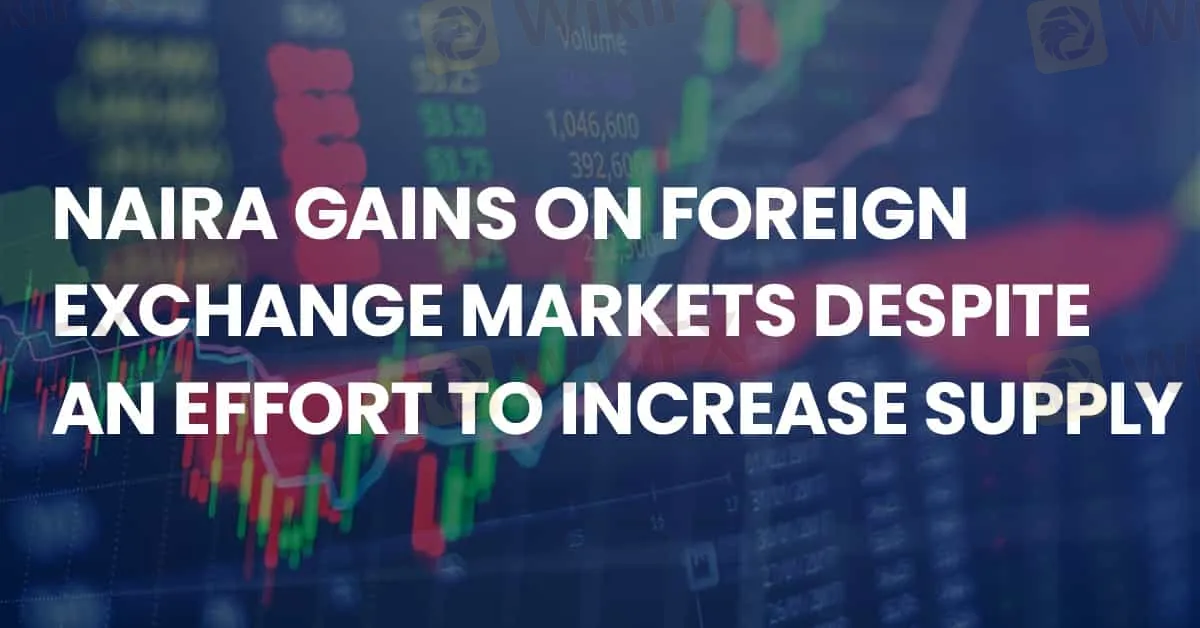Abstract:Both the authorized and unapproved market segments have seen a considerable decline in the value of the naira in recent months.

Both the authorized and unapproved market segments have seen a considerable decline in the value of the naira in recent months.
As the federal government announced measures to increase liquidity in the foreign currency market, the naira saw a big increase last week in both official and unofficial markets.
Both the authorized and unapproved market segments have seen a considerable decline in the value of the naira in recent months.
Following the Central Bank of Nigeria's (CBN) announcement in June that it would be unifying the Foreign Exchange window by adopting the Investors and Exporters (I&E) window, the currency devaluation became more noticeable. Due to a lack of dollars and high demand, the top bank's action during this time period made the domestic currency more volatile.
Several times, the federal government pledged to increase supplies in an attempt to lessen the impact of foreign exchange volatility on the overall economy.
WEEK PRIOR'S PERFORMANCE
But the naira saw a notable increase in value last week, indicating that market liquidity is expected soon.
The naira had a successful Friday closing in both the official and illegal markets. Based on market data released by FMDQ, the naira ended Friday at N776.14 to the US dollar. The rate indicates a 2.2% or N17.14 increase from the N793.28 recorded on Thursday. In a similar vein, the rate showed a 22% increase from N993.82, the closing value of the naira on Monday at the start of the week.
The naira saw a notable increase last week on the black market. The naira began trading last Monday at N1,160 per dollar, but ended the week on Friday at N950.00 per dollar, based on information gathered from Bureau De Change market dealers.
This week, the naira depreciated quite nicely. In an interview, a currency dealer going by the name Shuaibu stated, We started buying at N1000 on Friday morning but we closed the market at N950/$1 in the evening, because there was a sharp decline in market demand for the dollar last week, the market saw little patronage.
Following indications from Wale Edun, Nigeria's Minister of Finance and Coordinating Minister of the Economy, that the nation anticipates receiving $10 billion in foreign exchange in the not-too-distant future, the value of the naira increased across both market segments. The minister's remarks sparked reactions in the market by implying that the Nigerian government is prepared to increase market stability and liquidity in order to draw in foreign capital and boost the country's economy.
According to Mr. Edun, the administration can see foreign exchange inflows into the nation in weeks as opposed to months. “Moreover, there is a glimpse of $10 billion in foreign exchange in the relatively near future in weeks rather than months, thanks to the foreign exchange supply through NNPC, increased production, decreased expenditure, transactions like forward sales, and our discussions with sovereign wealth funds, who are ready to invest and provide advanced alongside that investment,” the minister stated.
He clarified that under forbearance, all cash in the domestic economy can lawfully enter the formal money supply thanks to an executive decree signed by President Tinubu.
As part of the government's efforts to stabilize the naira, reports during the week stated that the Central Bank of Nigeria cleared matured forward foreign currency contracts with certain banks. The projected amount of unpaid forward payments is $6.7 billion, and the market value of naira was affected by the backlog's clearance.
According to Razaq Fatai, Research and advice Lead at Vestance, an Abuja-based data-driven intelligence and advice organization, the Central Bank's efforts to clear the backlog of dollar demand are to blame for the recent gains seen in the FX market.
The Central Bank of Nigeria (CBN) is clearing a sizable amount of the dollar demand backlog is what has caused the recent trend in the local currency's gains. This might point to higher foreign exchange liquidity in the upcoming months, he stated.
However, Mr. Fatai stated that they still exist and that oil theft has left crude oil production relatively low. As a result, export revenues could not be enough to meet future FX requirements.
“The nation must address and resolve issues related to oil production in order to achieve long-term FX stability,” he continued.










